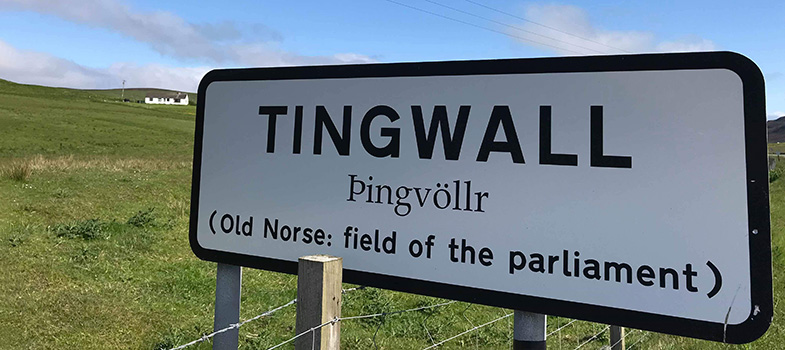5.7 In the context of Independence

In the run-up to, and following, the 2014 Scottish independence referendum, issues relating to constitutional politics have been a focus for the political parties in Scotland. Is it possible that these issues have also informed the approach to the Scots language?
Political opponents of independence have often associated the promotion of the Scots language with the promotion of Scottish nationalism.
For example, when the Scottish Government announced in 2015 initiatives to support the Scots language, such as a Scots Language Policy and a Scots Language Ambassadors scheme, Conservative and Unionist MSP Alex Johnstone said:
"This is a predictable stunt from a Scottish Government more interested in pandering to patriots than improving education. When it could be trying to push Scotland’s schools up global league tables, or closing the attainment gap, it’s actually trying to stir up the constitution in any way it can. It’s been well proven that our school children would benefit far more from learning international languages which could open all kinds of doors for them."
In many nationalist movements, such as in Catalonia, language and culture do play central roles. In Scotland, however, the SNP promote what is called a ‘civic nationalism’, focused on political and economic issues.
For example, First Minister Nicola Sturgeon, in a defining address in 2012, said:
“I don't agree at all that feeling British – with all of the shared social, family and cultural heritage that makes up such an identity – is in any way inconsistent with a pragmatic, utilitarian support for political independence. My conviction that Scotland should be independent stems from the principles, not of identity or nationality, but of democracy and social justice.”
Activity 12 
In the 2013 White Paper on independence, Scots is mentioned only briefly on page 312, noting: ‘the inspiration and significance we draw from our culture and heritage, including Gaelic and Scots’, which ‘shap[e] our communities and the places in which we live' (Scottish Government, Scotland's future, 2013 p. 312).
- You may be from Scotland, you may be from another country from anywhere in the world – to what extent do you think Scots will continue to have a place not only in Scottish cultural life – but also in Scottish politics?
Answer
This is a model answer. Your answer might be different.
The political party in power in Scotland today is the SNP – and has been for a number of years. As explained in this unit, the SNP are supportive of the Scots language, just as they are of Gaelic. The acceptance of the use of Scots in schools, together with evidence that it is good for the pupils, is also a signal that the politicians will continue to promote respect for Scots in many aspects of public life.
The Scots Language policy has helped develop a much wider acceptance of Scots as one of the three indigenous languages of Scotland – it has made Scots something politicians and educators cannot push to the side. The most important aspect to me yet is that the developments outlined in this unit help shape Scots speakers identity as bilingual people in a multilingual Scotland.
5.6 The main political parties and Scots
